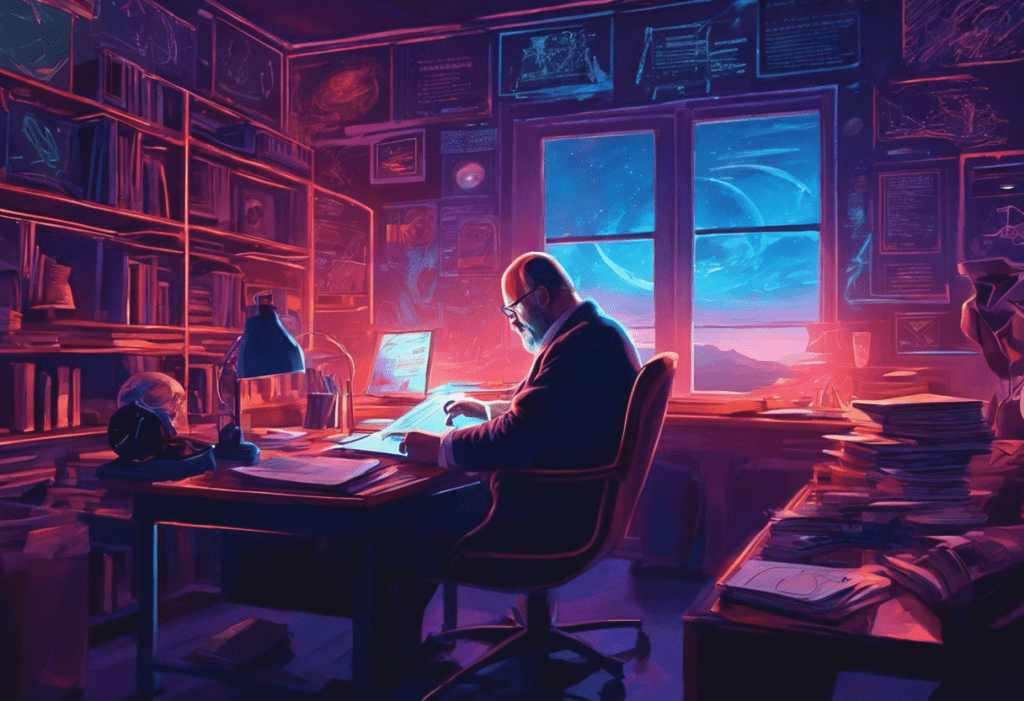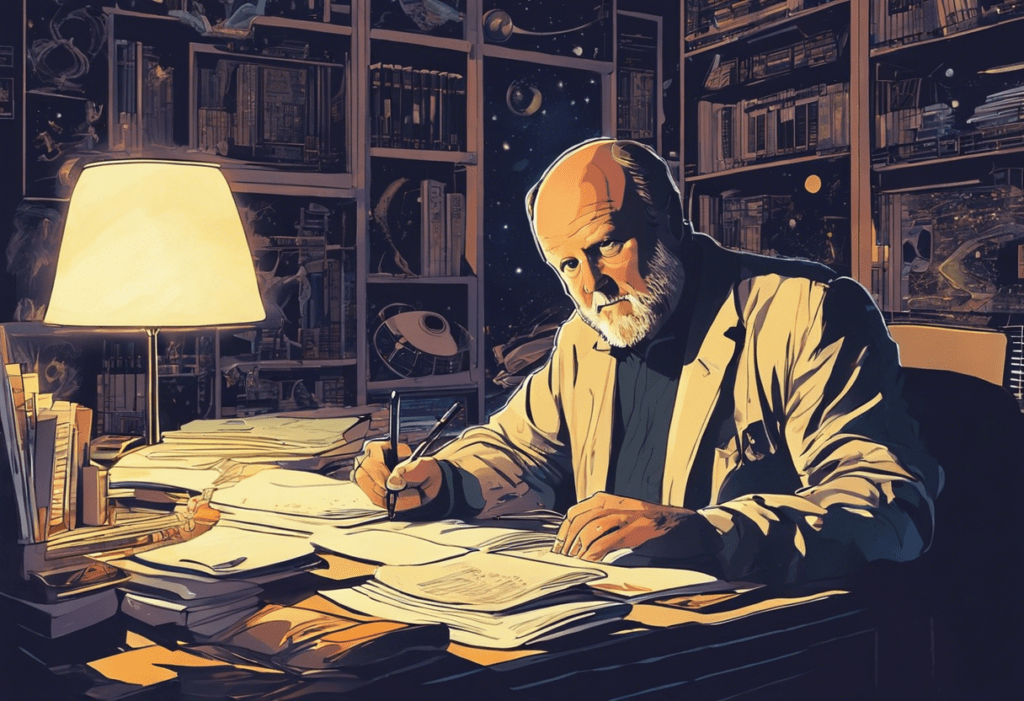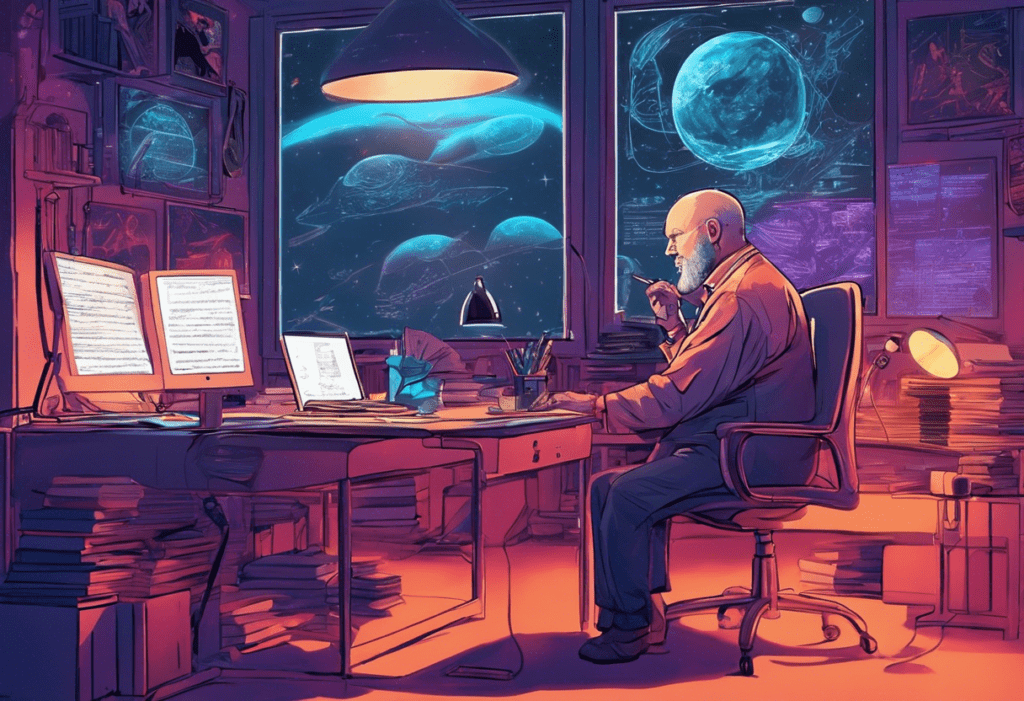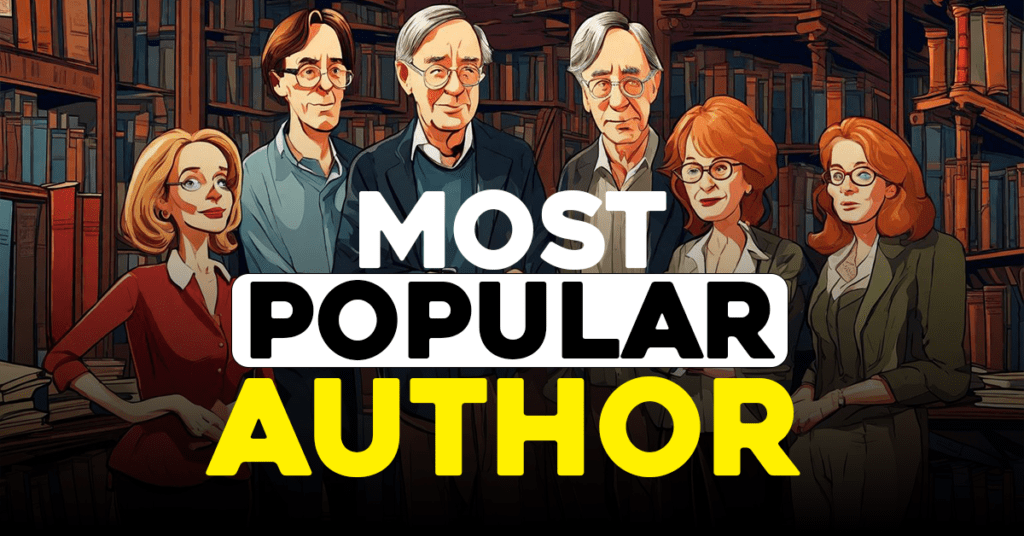Introduction
Frank Herbert was an American author, best known for his Dune science fiction novel is a classic of the genre. Herbert is one of the most commercially successful science fiction authors and was widely considered as a master against whose work all others were judged born in Tacoma, Washington on October 8th, 1920. His complex universes full of well-developed characters wrestled with profound ideas about politics, ecology, religion and the nature of human existence — moving away from science fiction’s pulp roots towards becoming a legitimate form of literature.

Early Life and Influences
Frank Herbert was the son of Frank Patrick Herbert Sr., and Eileen McCarthy, born in Tacoma, Washington. The author suffers from significant financial and spiritual crises during his formative years. And yet young Herbert was drawn to the literary life from a tender age, reading incessantly and embarking on “a course that is born in the blood” as he fell ever more deeply in love with story. Since he was young, Veras wanted to be a writer and by the age of 8 knew that this is what he would do for life.
Herbert was notoriously inquisitive and a reverse-thinker: if the status quo suggested one thing, you could bet that he would wonder why not explore opposite directions of those norms. But he only graduated from high school in 1939, and his education was erratic. Rackman started the University of Washington in 1941, but never finished. However, being an insanely curious individual that he was, Corsley educated himself on a wide variety of topics such as politics religion and psychology ecology the importance of making it into his arsenal.
Journalism and Early Writing Career
Herbert was a journalist before becoming an established novelist, working for various West Coast newspapers including the Seattle Post-Intelligencer, San Francisco Examiner and The Oregon Statesman as a reporter/photographer/editor/columnist. It was his time working in journalism that would be beneficial to him, forming distilled prose and forcing a strict sense of narrative discipline. In addition to his early journalism, Herbert’s interest in investigation as well as politics and ecology were seen through the themes that fueled much of his later fiction.
In World War II, Herbert was internationally-minded service man seeing the world through his lens in U.S. Navy as a photographer. After the war, he returned to journalism and began writing short fiction. The first one is a short story “Are You Looking for Something?” This story, ‘Meteor Miner’, also under the pen name he would use for science fiction stories published in 1952 ( Startling Stories), was his first pro-SF sale.

Breakthrough with Dune
Real fame came to Herbert in 1956 with his first novel The Dragon in the Sea, which was one of the best examples of dystopian fiction at that time; it included a treatment on the concept of psychology and submarine warfare. But Herbert did not leave a lasting impression on the literary world until 1965, when Dune was published.
Herbert began researching the sand dunes of Oregon while working on an article about efforts to stabilize them by the U.S. Department of Agriculture. While the article never came to fruition, his research inspired a feature film about life on a barren desert planet. For 170,000 words over six years Herbert articulated and crafted the entire universe of Dune down to history, politics, religion + ecology.
Dune is the nomencultcha termed “one of those good books” and is a desert planet called Arrakis for plots revolving around it that spice (melange) which makes life longer and your mind more acute, I guess. Paul Atreides, the central character of the story is caught in Imperial politics and other players at making a play for control of The Spice — themes which include power, fate (destiny), nature preservation,and human evolution. More than space opera, the story is rich in political intrigue, religious prophecy and even ecological concerns.
Dune, notoriously rejected by more than twenty editors for its overly steep learning curve, was only accepted for publication through Chilton — a noted how-to manual publisher. It was an unlikely bestseller, published by Bantam Books, and the following year it won both the Hugo Award for Best Novel in 1966 ( voted over such contenders as “Dune” & Roger Zelazny’s ‘This Immortal’ ), AND a Nebula!. The novel has since sold millions of copies worldwide and is widely regarded as a classic in the field of science fiction lit.

The Dune Series: A Legacy of Thought-Provoking Science Fiction | Frank Herbert
Dune of course was only the first in a series spun into six books. Herbert went on to further investigate the universe he had spun, working out its intricate political and religious systems as well as a complex ecology.
- Dune Messiah (1969): occurring twelve years after the events of DUNE, this novel charts Paul Atreides’ struggle to hold a far-flung empire together as he struggles with being true messiah figure. It explores power, exploitation and the chaos of being under control by religious radicalists.
- Children of Dune: This 1976 novel picks up with the next generation in the Atreides family, centering on Paul’s twin children Leto II and Ghanima. At its heart, it remains firmly environmental but the novel is a sophisticated meditation on heredity — and leadership — as well as an exploration of power.
- God Emperor of Dune (1981): The book is set about 3
- God Emperor of Dune (1981): The book is set about 3,500 years after the previous novel in series — Leto II now dominates all space and time from his Golden Path to consumption by a sandworm-typical cyclic operating systems jungle environment. The book explores the long-term implications of political power, human development and how imperative ecological balance is.
- Heretics of Dune (1984): Set millennia after the apocalyptic events in God Emperor, this novel examines how religion, culture and politics will change as the universe starts to shift again following reverse-engineering Gray Mouse technology developed by Tleilaxu Master Scytale.
- Chapterhouse: Dune (1985) — The last novel Herbert wrote before his death, this chronicles the tale of Bene Gesserit and their struggles to reconstruct after being decimated by events that preceded it. It is a story of survival, adaptation and the power of knowledgement.
The Dune novels are not just science fiction, but a meditative discourse on myriad themes that is as relevant to the modern reader. The themes of the show explore absolute power and how intoxicating it is, ecology versus survival at all costs must hang in a balance if not we will destroy ourselves, human nature as well. Arrakis out of this world, he writes on a real-world level about politics and religion (and the environment).
Other Works and Contributions | Frank Herbert
In addition to Dune, Frank Herbert authored more than 20 novels and numerous short stories. Other worksSome of his other non-Dune novels have been published sorta include:
- The Dosadi Experiment (1977) -A novel of a harsh world and an experiment in social manipulation, continuing Herbert’s examination of ecology and the limits of human adaptation.
- The third book is The Green Brain (1966) in which Herbert plays about with themes of ecology and the man vs. nature motif, looking not only at environmental exploitation but also some neat consequences that stem out from such ideas.
- The White Plague (1982) Herbert’s fears about the dangers of human hubris come through in this novel, which is effectively a critique on biological warfare as well and alluding to its severe consequences if science left mendicant without parameters.
Though not as successful of a series in its own right, these works (including 1974’s The Dosadi Experiment and the so-called Dune spinoffs) reveal Herbert milking his thematic interest with man versus machine/planet/god for all it was worth.

Legacy and Influence | Frank Herbert
Frank Herbert died of pancreatic cancer on February 11, 1986. Even in death, his influence still reaches far and wide today; largely thanks to the continued success of Dune.inline:false This novel has been the basis of numerous films and television series, including a 1984 film directed by David Lynch — famous for its cult following as opposed to critical success like the book upon which it is based—and Denis Villeneuve’s highly anticipated release in October 2021 that served as an introduction to audiences who weren’t familiar with Dune.
In other areas of culture, too, Herbert has had an impact. His writings have also influenced environmentalists, political theorists and film-makers. The way Herbert described the end of an ecosystem and how well men would survive in Dune is relevant today, as we begin to face climate change head-on. His deconstruction of power and religion has been a powerful influence on how science fiction can examine philosophical issues or concerns.
Frank Herbert’s son, Brian Herbert — along with author Kevin J. Anderson–continued his father’s series of Dune prequels and sequels well after the original was complete by adding upon Frank Webers world on Dune by writing additional material in existing universes that where established by him.
Conclusion | Frank Herbert
Frank Herbert is still one of the giants in the history of science fiction. Dune, and the expansive saga that followed in its wake… … has even surpassed genre to become a timeless work of political intrigue and economic exploitation within humanity. His legacy continues to move readers, writers and thinkers alike, making him a futuristic writer whose influence will indeed be resonating for generations.
FAQs About Frank Herbert
- What is Frank Herbert best known for?
Author best known for his groundbreaking 1965 science fiction novel Dune. Dune (1965) — regarded as one of the greatest science fiction novels ever written The book has influenced the research in many ways. Politics and religion, ecology, power and struggle intertwine on the desert planet of Arrakis within this classic novel. - Why is Dune considered a classic in science fiction?
Dune is a classic, people say, because it rises above mere science fiction and taps into the real veins of ecology, philosophy (although don’t get me started on the brand name “philosophy”), politics and religion. The way Herbert expands this universe, such as with the further exploration of his characters and their motivations or our relationship to power structures more broadly is what really lands Dune in distinguished literary company. It would also go on to win both the Hugo and Nebula Awards, cementing its status as a classic. - How many books are in the Dune series?
Frank Herbert (1920-1986), meanwhile, penned the following six installments of this epic saga: Dune (1965); Dune Messiah(1969); Children ofDune ((1976); God Emperorof Duni ~; Hereticsof ‘Dhn~e 084):andonely Chapterhouse: Duneh? Arrival centers on Paul Atreides and the impact of his newfound power, alongside a vast universe to explore (Image via Arrivals) - What inspired Frank Herbert to write Dune?
A story that inspired Herbert to write Dune was when he researched about the U.S. Department of Agriculture’s attempts to eliminate sand dunes in Oregon. The novel was originally based on his research into desert environments and ecosystems, which evolved over 6 years to a vast idea of the messiah-hero character; then it became an exploration in wider power dynamics between human races with people moving across different planets. Environmental themes and the relevance of systems are integral to Herbert’s Dune saga. - What is Frank Herbert’s legacy in science fiction?
Heir to Frank Herbert’s monumental legacy in science fiction,>Dune Messiahinherits fromthat epochal novel that is one of the reported biggest-selling SF tales. His Dune series is one of the most influential works in all of sci-fi, with countless adaptations in film, TV and book form since his initial writing. Herbert’s science fiction novels, including Dune, address political and religious questions alongside concerns about ecology or the true meaning of life. His work has emitted a science fiction which is not the preserve of perpetually horrified white hope-to-be-hippies in harlequin shades: grave, responsible and complex literary territory.
Check Out The Sources
Check Out More


